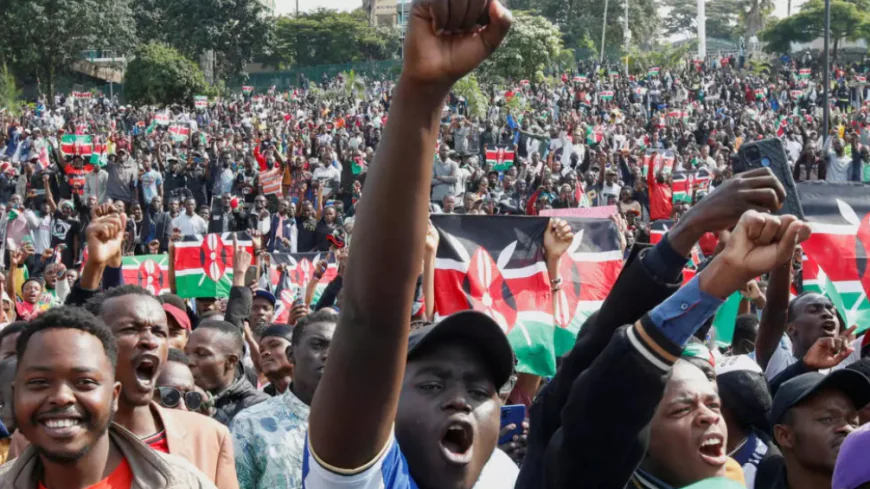Kenya's Gen Z Protests: From Tax Revolt to Tragedy and Political Tensions
Kenya’s Gen Z protests against tax hikes shook the nation in 2024. Now, with the death of activist Albert Ojwang in police custody, calls for justice and reform have reignited.

In June 2024, mass protests erupted across Kenya in response to a proposed tax hike bill, sparking what became one of the country’s most significant political uprisings in decades. The protests came at a time when 40 percent of the population lived in poverty, and government corruption scandals were a regular feature.
“It was spontaneous, leaderless and unlike anything our country had ever seen,” said Hanifa Adan, 28, a prominent voice in the youth-led uprising that came to be known as the “Gen Z protests.”
The movement peaked on 25 June 2024, when thousands stormed Parliament during the tax bill debate. President William Ruto eventually withdrew the bill, but not before 60 people died and dozens were arbitrarily detained in what was widely criticized as a violent police response.
A New Era of Youth Politics
The protests marked a turning point. For the first time in recent history, Kenyan youth appeared to reject ethnic and regional political divisions, uniting around policy issues and accountability.
But as the weeks passed, the movement began to fracture. While some protesters continued to push for change—especially in issues of women’s rights and police brutality—others moved toward mainstream politics.
Also Read: Israel-Iran Conflict Escalates: Deadly Overnight Strikes Rock Region
Political Realignment
One of the more controversial shifts came from Kasmuel McOure, 27, who rose to prominence with bold speeches during the protests. He later aligned with veteran opposition leader Raila Odinga, who had since joined forces with the Ruto government.
“If you're going to play politics then let's play it properly,” McOure told AFP, defending his pivot to establishment politics.
Many activists saw this move as a betrayal, questioning his motives amid speculation he plans to run for parliament in 2027.
Police Brutality Reignites Protests
The fragile calm was shattered once more with the death in custody of activist and blogger Albert Ojwang last weekend. He had been arrested in Homa Bay but was transported 350km to Central Police Station in Nairobi, bypassing local legal processes.
His suspicious death sparked new protests, beginning in Nairobi near the police station where he died. Police responded with tear gas, and clashes ensued.
Also Read: India Mourns 279 Victims of Air India Crash as DNA Identifies First Bodies
Amnesty Demands Independent Probe
Amnesty International Kenya and other rights groups issued a powerful joint statement:
“Why would the Directorate of Criminal Investigations drive 350km past multiple police stations with a peaceful detainee? Why would a suspect calling for bail commit suicide in custody?”
They are calling for a UN-led independent investigation into Ojwang’s death and wider police abuses, warning that without external accountability, state violence will remain a threat to Kenyan lives and democracy.


